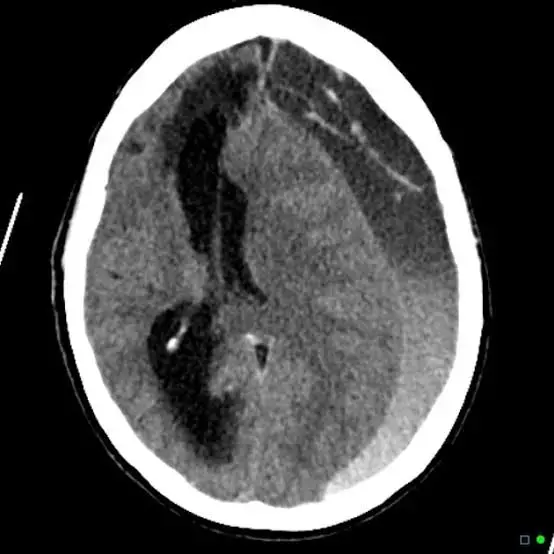- Home
- Medical news & Guidelines
- Anesthesiology
- Cardiology and CTVS
- Critical Care
- Dentistry
- Dermatology
- Diabetes and Endocrinology
- ENT
- Gastroenterology
- Medicine
- Nephrology
- Neurology
- Obstretics-Gynaecology
- Oncology
- Ophthalmology
- Orthopaedics
- Pediatrics-Neonatology
- Psychiatry
- Pulmonology
- Radiology
- Surgery
- Urology
- Laboratory Medicine
- Diet
- Nursing
- Paramedical
- Physiotherapy
- Health news
- Fact Check
- Bone Health Fact Check
- Brain Health Fact Check
- Cancer Related Fact Check
- Child Care Fact Check
- Dental and oral health fact check
- Diabetes and metabolic health fact check
- Diet and Nutrition Fact Check
- Eye and ENT Care Fact Check
- Fitness fact check
- Gut health fact check
- Heart health fact check
- Kidney health fact check
- Medical education fact check
- Men's health fact check
- Respiratory fact check
- Skin and hair care fact check
- Vaccine and Immunization fact check
- Women's health fact check
- AYUSH
- State News
- Andaman and Nicobar Islands
- Andhra Pradesh
- Arunachal Pradesh
- Assam
- Bihar
- Chandigarh
- Chattisgarh
- Dadra and Nagar Haveli
- Daman and Diu
- Delhi
- Goa
- Gujarat
- Haryana
- Himachal Pradesh
- Jammu & Kashmir
- Jharkhand
- Karnataka
- Kerala
- Ladakh
- Lakshadweep
- Madhya Pradesh
- Maharashtra
- Manipur
- Meghalaya
- Mizoram
- Nagaland
- Odisha
- Puducherry
- Punjab
- Rajasthan
- Sikkim
- Tamil Nadu
- Telangana
- Tripura
- Uttar Pradesh
- Uttrakhand
- West Bengal
- Medical Education
- Industry
Dexamethasone versus Surgery for treatment of Chronic Subdural Hematoma

A recent multicenter trial published in New England Journal of Medicine compared the effectiveness of dexamethasone treatment and burr-hole drainage surgery in patients with chronic subdural hematoma. Chronic subdural hematoma is a common condition characterized by the accumulation of blood in the space between the brain's outer membrane and the skull. The trial aimed to determine whether dexamethasone therapy alone could achieve similar functional outcomes as surgery.
The trial randomly assigned symptomatic patients to receive either a 19-day tapering course of dexamethasone or undergo burr-hole drainage surgery. The primary endpoint was the functional outcome at 3 months, measured using the modified Rankin scale. The trial was designed as a noninferiority study, with the goal of establishing whether dexamethasone was not worse than surgery by a prespecified margin. Secondary endpoints included symptom severity scores and the Extended Glasgow Outcome Scale.
However, the trial was stopped early due to concerns about complications and poor outcomes associated with dexamethasone treatment. Based on the available outcomes at the time of the trial's termination, the noninferiority of dexamethasone could not be confirmed. The trial was not designed to assess the superiority of either approach, but the majority of results tended to favor surgery numerically. The secondary endpoint results were inconsistent at different time points but generally aligned with the primary analysis.
In the dexamethasone group, 55% of patients eventually required surgery, compared to only 6% in the surgery group who needed reoperation. Additionally, patients in the dexamethasone group experienced higher mortality rates, more complications, and longer hospital stays than those in the surgery group. These findings align with those of a previous trial, which also demonstrated worse outcomes with dexamethasone therapy for chronic subdural hematoma compared to placebo.
One notable difference between the current trial and the previous study was the percentage of patients who underwent surgery. In the previous trial, 94% of patients underwent surgery after randomization, while in this trial, a waiting period of two weeks was implemented to assess the potential effect of dexamethasone as a monotherapy. As a result, a lower but still significant proportion (55%) of patients in the dexamethasone group eventually required surgery. The higher incidence of surgery after dexamethasone treatment in this trial may account for the increased complications observed.
Prior studies on dexamethasone therapy for chronic subdural hematoma were limited by their small sample sizes and lack of formal comparator groups. Although some uncontrolled studies reported beneficial effects of dexamethasone, its specific role in selected cases or with certain imaging characteristics of chronic subdural hematoma was not addressed in this trial. Further investigations are ongoing in these areas.
In summary, this multicenter trial comparing dexamethasone treatment and surgery for chronic subdural hematoma showed that dexamethasone was not noninferior to surgery in terms of functional outcomes. Patients receiving dexamethasone had a higher likelihood of requiring additional surgery and experienced more adverse events compared to those who underwent initial surgical drainage. These results emphasize the importance of surgical intervention as the mainstay of treatment for symptomatic chronic subdural hematoma.
Reference:
Dexamethasone versus Surgery for Chronic Subdural Hematoma Miah IP et al. DOl: 10.1056/NEJMoa2216767 N Engl J Med 2023; 388:2230-2240
MBBS, DrNB Neurosurgery
Krishna Shah, MBBS, DrNB Neurosurgery. She did her MBBS from GMC, Jamnagar, and there after did direct 6 Year DrNB Neurosurgery from Sir Ganga Ram Hospital, Delhi. Her interests lie in Brain and Spine surgery, Neurological disorders, minimally invasive surgeries, Endoscopic brain and spine procedures, as well as research.
Dr Kamal Kant Kohli-MBBS, DTCD- a chest specialist with more than 30 years of practice and a flair for writing clinical articles, Dr Kamal Kant Kohli joined Medical Dialogues as a Chief Editor of Medical News. Besides writing articles, as an editor, he proofreads and verifies all the medical content published on Medical Dialogues including those coming from journals, studies,medical conferences,guidelines etc. Email: drkohli@medicaldialogues.in. Contact no. 011-43720751


